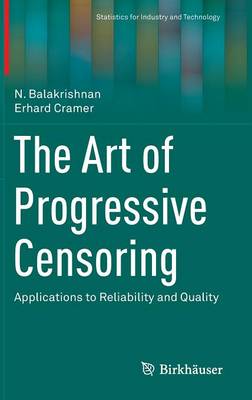Statistics for Industry and Technology
6 total works
Advances in Stochastic Simulation Methods
by N. Balakrishnan, S. Ermakov, and V.B. Melav
Quantile-Based Reliability Analysis
by N. Unnikrishnan Nair, P.G. Sankaran, and N. Balakrishnan
This book offers a thorough and updated guide to the theory and methods of progressive censoring, an area that has experienced tremendous growth over the last decade. The theory has developed quite nicely in some special cases having practical applications to reliability and quality.
The Art of Progressive Censoring is a valuable reference for graduate students, researchers, and practitioners in applied statistics, quality control, life testing, and reliability. With its accessible style and concrete examples, the work may also be used as a textbook in an advanced undergraduate or a beginning graduate course on censoring or progressive censoring, as well as a supplementary textbook for a course on ordered data.
This new book offers a guide to the theory and methods of progressive censoring. In many industrial experiments involving lifetimes of machines or units, experiments have to be terminated early. Progressive Censoring first introduces progressive sampling foundations, and then discusses various properties of progressive samples. The book points out the greater efficiency gained by using this scheme instead of classical right-censoring methods.



